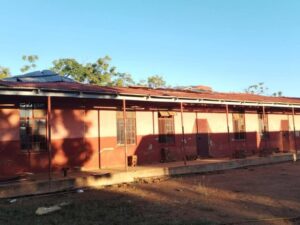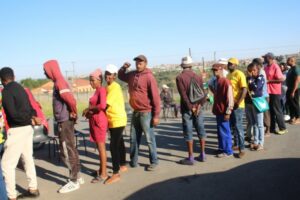
More than 300 girls aged between 10 and 14 years have given birth in the Eastern Cape since April 2024. The high rate of teenage pregnancy in the province came under the spotlight at an indaba held at Osner Hotel, in East London on Thursday.
Schools in the province continue to battle high numbers of teenage pregnancies, with more than 15,000 girls aged between 10 and 19 years having given birth at public healthcare facilities in the 2024/25 financial year.
According to the provincial health department’s statistics, 396 teenage girls between 10 to 14 years have given birth in public facilities, while 14,903 girls and women between the ages of 15 and 19 years have given birth during the same period.
The shocking statistics were revealed by the Eastern Cape Aids Council which brought together stakeholders from various sectors to address this pressing social, health and developmental crisis. The council’s acting provincial head, Dr Phelisa Dana said the indaba was organised after alarming numbers of births were reported, especially in the OR Tambo district. The district alone accounted for 98 deliveries by girls aged between 10 to 14 years and 4,327 by girls between 15 and 19 years of age.
“Led by the alarming statistics in the OR Tambo, especially in Enyandeni area, we conducted focus groups. But we decided not to just stop there but open this indaba up and engage these stakeholders, especially the young girls to understand what the root causes are,” said Dana. Lack of knowledge and inaccessibility of health services were the main causes of early pregnancies with far-reaching consequences that include HIV infection, school dropout and perpetuation of poverty.
“When we visited OR Tambo [district]
we found out that young girls
there did not even know about
birth control or preventative measures”
“We may assume sometimes that the information we share reaches everyone but girls in that area did not even know what a morning-after pill was. So we need to be intensifying sexual reproduction education and address service delivery in the healthcare sector,” she added.
Dana emphasised the urgent need for a multi-sectoral and community-driven response. “To mitigate this challenge, we need to collaborate. For instance, we have realised that while we are advocating for the availability of family planning, we tend to forget that these young girls spend most of their time at school. By the time they leave school, the health facility is closing for business, so we have to make sure that the health services get to them where they are available – at schools,” she said.
The discussion revealed alarming trends regarding terminations of pregnancy, with girls between 10 to 14 years accounting for 101 terminations, while girls aged 15 to 19 years accounted for more than 2,000 terminations. High burden areas were identified as the OR Tambo district followed by Buffalo City Municipality.

Government departments tackle teenage pregnancies
Noluvuyo Mekuto from the provincial department of social development said there were interventions and continuous campaigns by the department. “We have implemented social and behavioural programmes, such as Chomy, and YOLO (You Only Live Once) which targets 15- to 24-year-olds to make responsible choices regarding their sexual health and well-being. It aims to build self-esteem in young people to reduce risky behaviors like substance abuse, thus preventing new HIV infections,” said Mekuto
She spoke about Boys Championing and Families Matters, a parent-focussed intervention aimed at improving parent-child communication, particularly on sensitive topics like sexuality and sexual risk reduction.
Liziwe Lunyawo of the health department said they are exploring strategies to combine access to education, and life-skills learning at youth care centres.
In December last year, the department of education set out a new policy which aims to reduce teenage pregnancy. The policy suggests that schools have to send police reports if the pregnant girl is under the age of 16 and the father of the child is older than 16.
Questions sent to the provincial department of education on the implementation of the policy have not been responded to.
16-year-old pupil, Zikho Qumbelo said sex education must be reviewed as it does not address issues such as early pregnancies. “As much as the session was impactful, I would have appreciated it if they allowed us to make presentations as we are the affected ones. Also with sex education at schools, I don’t think it is properly addressing sexual behaviors and teenage pregnancy,” she said.





